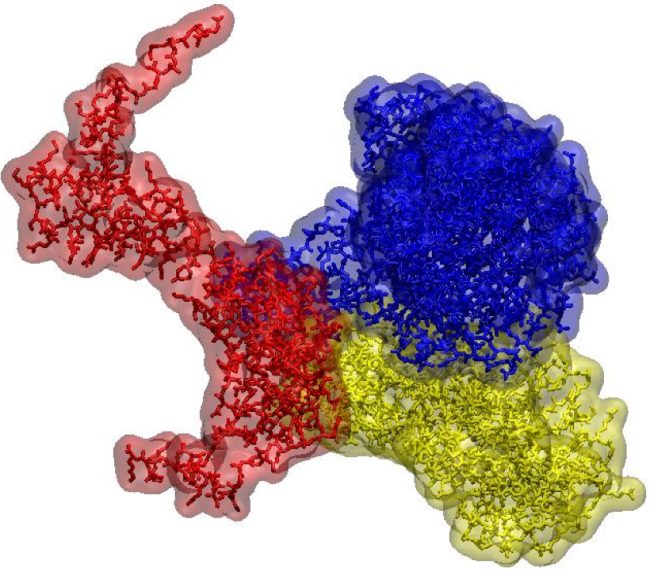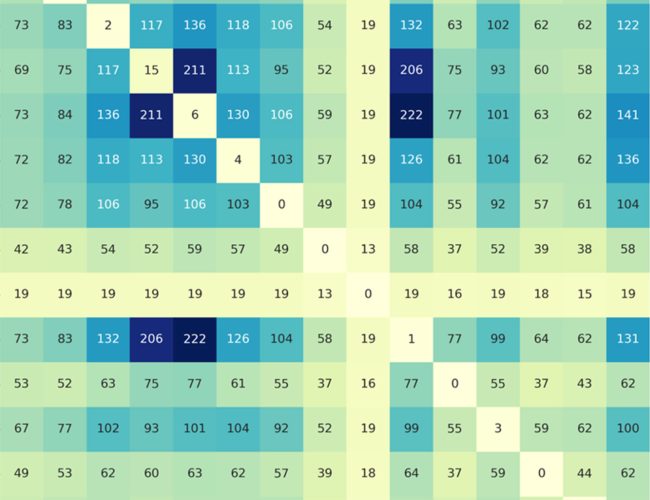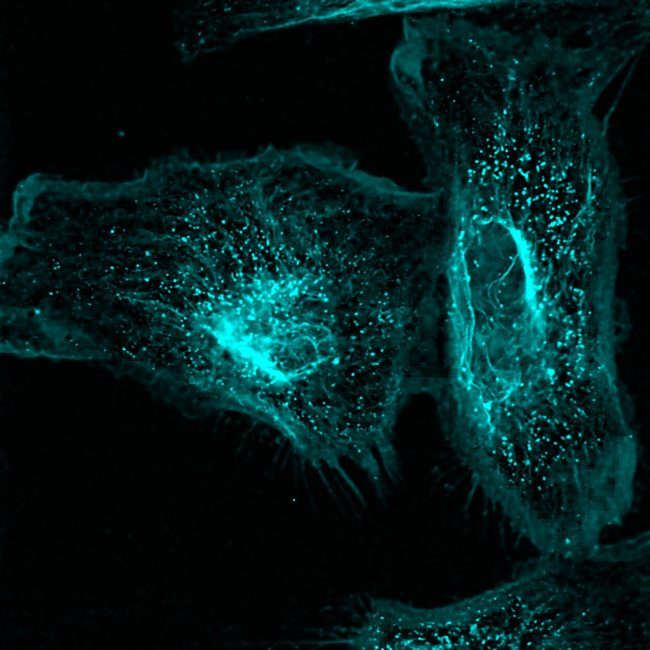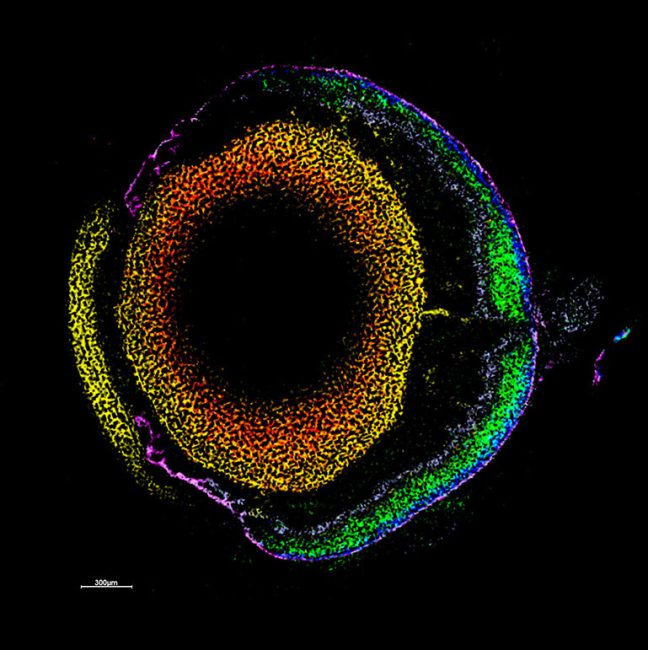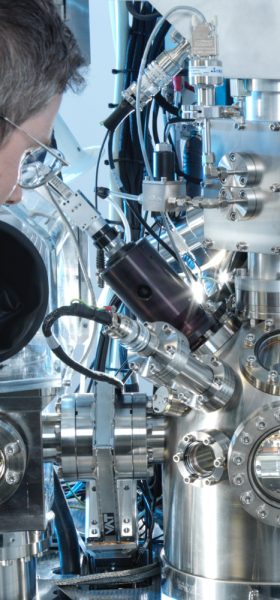“We are putting AI at the centre of our biological research, meaning that we are generating the type of data that is needed to drive AI and machine learning. This will supercharge our science so we can find out more about human biology and health.”
The ambition
Machine learning accelerates UK life sciences discovery to improve health. The expertise we build at the Franklin, the open data we share, and the tools we generate, are used by the wider UK research community to boost UK life sciences. The culture we build of sharing high quality data sets with the wider scientific community inspires others to do the same, and drives the generation of revolutionary new tools that change the face of biological research.
We will focus on efficient use of AI and machine learning, which will include reducing energy use and thereby reducing both the cost and environmental impact of these technologies.
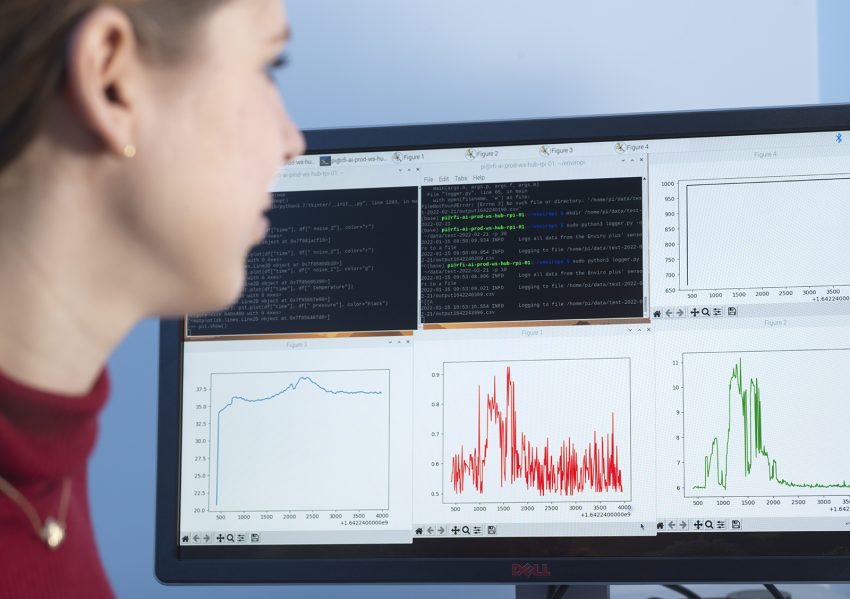
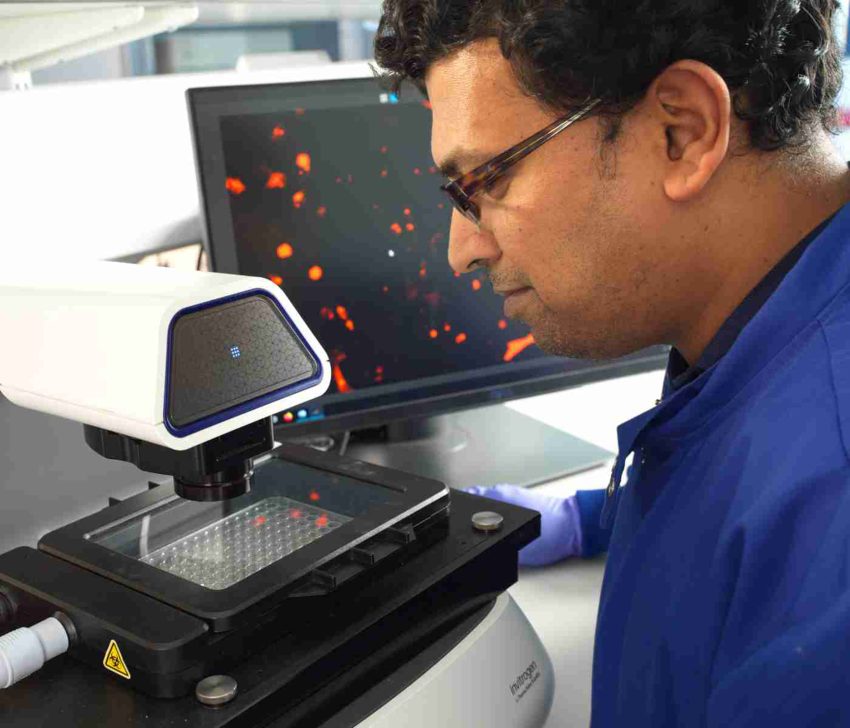
What are we doing?
Data scientists are an integral part of our matrix research teams tackling complex life sciences challenges. By being involved from the earliest stages of the project, and throughout the whole project lifespan, the highest quality data will be generated, and the most appropriate AI and machine learning tools will be used.
Our tools and data generated will be open source to allow researchers internally and externally to create new- and modify existing- machine learning tools and AI algorithms. We hope these tools will be used to accelerate research and to help prioritise life sciences research efforts to areas that are most likely to give results.
Why?
Adapting AI and machine learning for use in biology presents a number of challenges. Biology is complex, every person, patient and sample in biology has unique variations, which creates huge challenges. Harnessing the power of AI and machine learning to understand biology is in its infancy, and as a result is often used inefficiently or in ways that doesn’t yield helpful results. Our work in this area will address these challenges and our learning show how AI can be used more efficiently and effectively.
Research examples
A key focus area is to create a digital replica of a living cell for research. This project will map a three-dimensional cell in detail using the advanced imaging tools here at the Franklin. This will generate new data that will allow us to see and understand a living cell in more depth than ever before. This data will be used to train AI algorithms to identify cellular components to speed up generation of information to create the digital twin.
The aim is that, once created, the digital twin cell can be used for virtual experiments, giving researchers a highly valuable and cost effective scientific tool to understand biology and health. The project will also give valuable insights into cell structure and biology.
Why the Rosalind Franklin Institute?
The Institute already has significant computing, AI and machine learning capabilities, and this challenge will cement and expand upon this. Our PhD student programme already upskills the next generation of researchers in AI and machine learning, and our biologists, chemists and physicists benefit from tight knit working with computer scientists.
The relatively small number of researchers at the Institute creates a culture where expertise is more easily shared and our matrix teams allow for computer science to be more easily embedded into projects.

